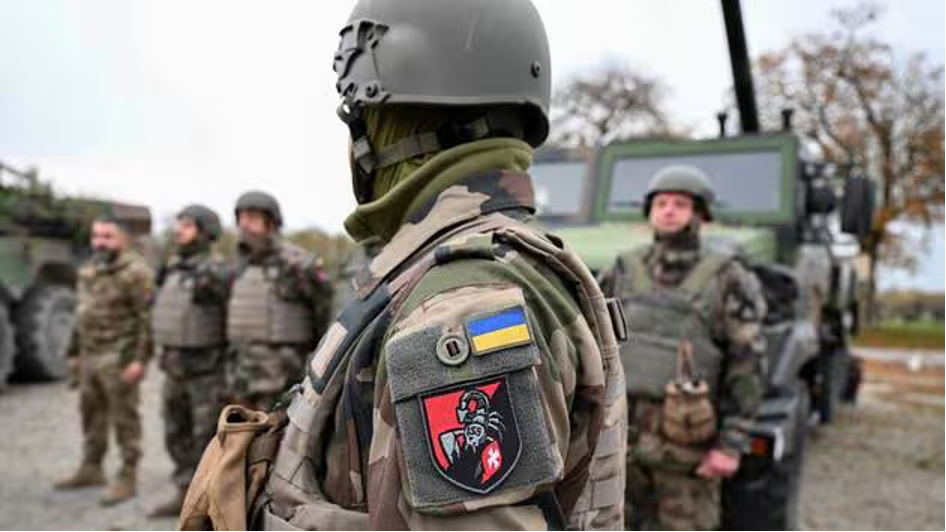Russian President Vladimir Putin claimed during a televised meeting with military generals on Monday, Dec. 16, that Russian forces held the upper hand along the entire front line in Ukraine and were accelerating their offensive.
“Russian troops are firmly holding the strategic initiative along the entire line of contact,” he said, describing 2024 as a “landmark year in the achievement of the goals of the special military operation” (SVO) — Moscow’s term for its war against Ukraine.
JOIN US ON TELEGRAM
Follow our coverage of the war on the @Kyivpost_official.
According to Putin, Russian forces had seized 189 Ukrainian settlements over the course of the year.
He also praised Russia’s defense industry, highlighting progress in missile production, including hypersonic systems such as the Oreshnik missile, which was used in an attack on Dnipro last month. Putin indicated that AI-powered systems were also being deployed on the battlefield.
Addressing military expenditure, Putin said that defense and security spending accounted for nearly nine percent of Russia’s GDP, with military spending alone exceeding six percent.
“It is not, strangely enough, the biggest expenditure in the world, even among countries that do not have any armed conflict,” he told the meeting while emphasizing the need for rational use of these funds.
Putin boasted of a significant increase in volunteer recruitment, claiming 430,000 people had joined the military in 2024, up from approximately 300,000 in 2023.

Do or Die - Help Save Lives in Ukraine
“This flow of volunteers is not stopping,” he added, pointing to high salaries and sign-up bonuses as incentives.
Russian Defense Minister Andrei Belousov echoed Putin’s words, reporting that Russian forces had seized nearly 4,500 square kilometers (1,738 square miles) of Ukrainian territory this year, advancing by around 30 square kilometers (12 square miles) daily.
He stated that Ukraine retained less than 1% of the Luhansk region and controlled only 25-30% of Donetsk, Kherson, and Zaporizhzhia regions.
Belousov’s claims followed reports that Russian forces had captured another village in Donetsk as they pushed forward in eastern Ukraine, advancing at their fastest pace since the early days of the invasion in 2022.
While Moscow continues to tout its gains, Ukraine, which still holds parts of the annexed territories, faces increasing pressure on the battlefield amid speculation about potential peace negotiations.
Moscow aims for victory in Ukraine by 2025
Belousov also announced that Moscow plans to achieve its goals in the war in Ukraine by 2025, including capturing the entirety of four Ukrainian regions: Donetsk, Luhansk, Kherson, and Zaporizhzhia.
“In 2025, Moscow intends to secure victory in the war in Ukraine and fulfill the objectives outlined by President Putin in June,” he stated.
He also raised the prospect of a potential conflict with NATO within the next decade.
“The Russian Defense Ministry must be prepared for any scenario, including the possibility of a military confrontation with NATO in Europe within the next ten years,” Belousov said.
In early December, reports surfaced that the Kremlin is crafting a “victory narrative” for the Ukraine war, instructing regional officials to shape public perception. According to Kommersant, the strategy was outlined at a vice-governor seminar in Moscow, chaired by Sergei Kiriyenko, First Deputy Head of the Presidential Administration.
The Kremlin is reportedly preparing Russians to view the war's conclusion as a success, even if it falls short of expectations from hardline “angry patriots” or “liberals.”.
Officials were urged to focus on the “calm majority,” framing the SVO as achieving President Putin’s stated goals of “denazification, demilitarization, and securing new Russian territories.”
Putin emphasized rehabilitating and employing returning soldiers to avoid outcomes like those faced by “Afghan veterans,” including turning to crime or making protests. Officials were also tasked with combating negative stereotypes about SVO participants, particularly in light of recent reports of crimes committed by returning soldiers, by explaining that PTSD does not affect all veterans.
You can also highlight the text and press Ctrl + Enter






